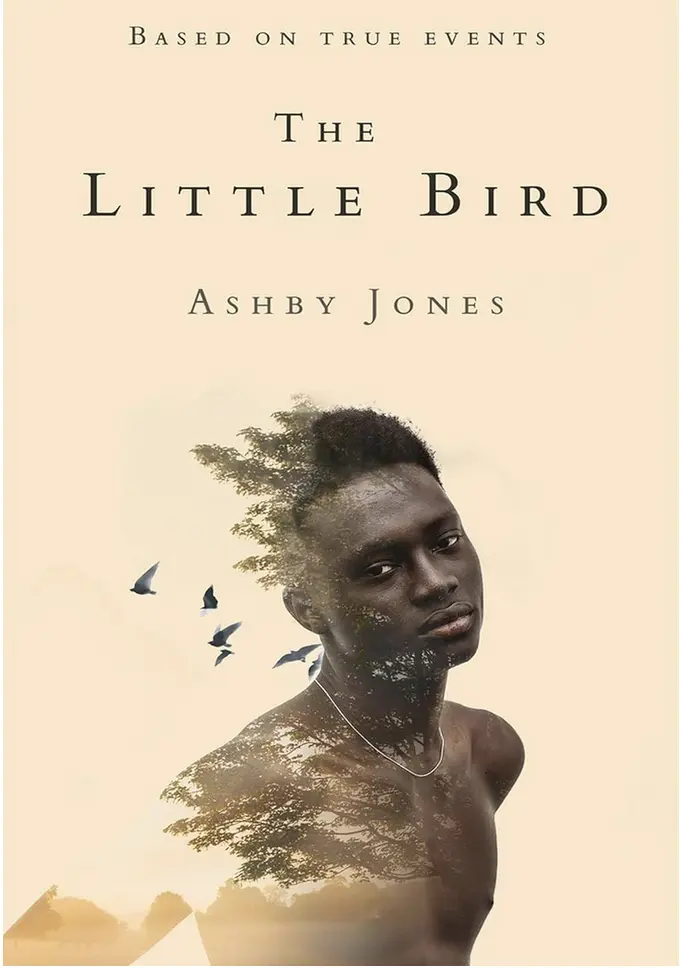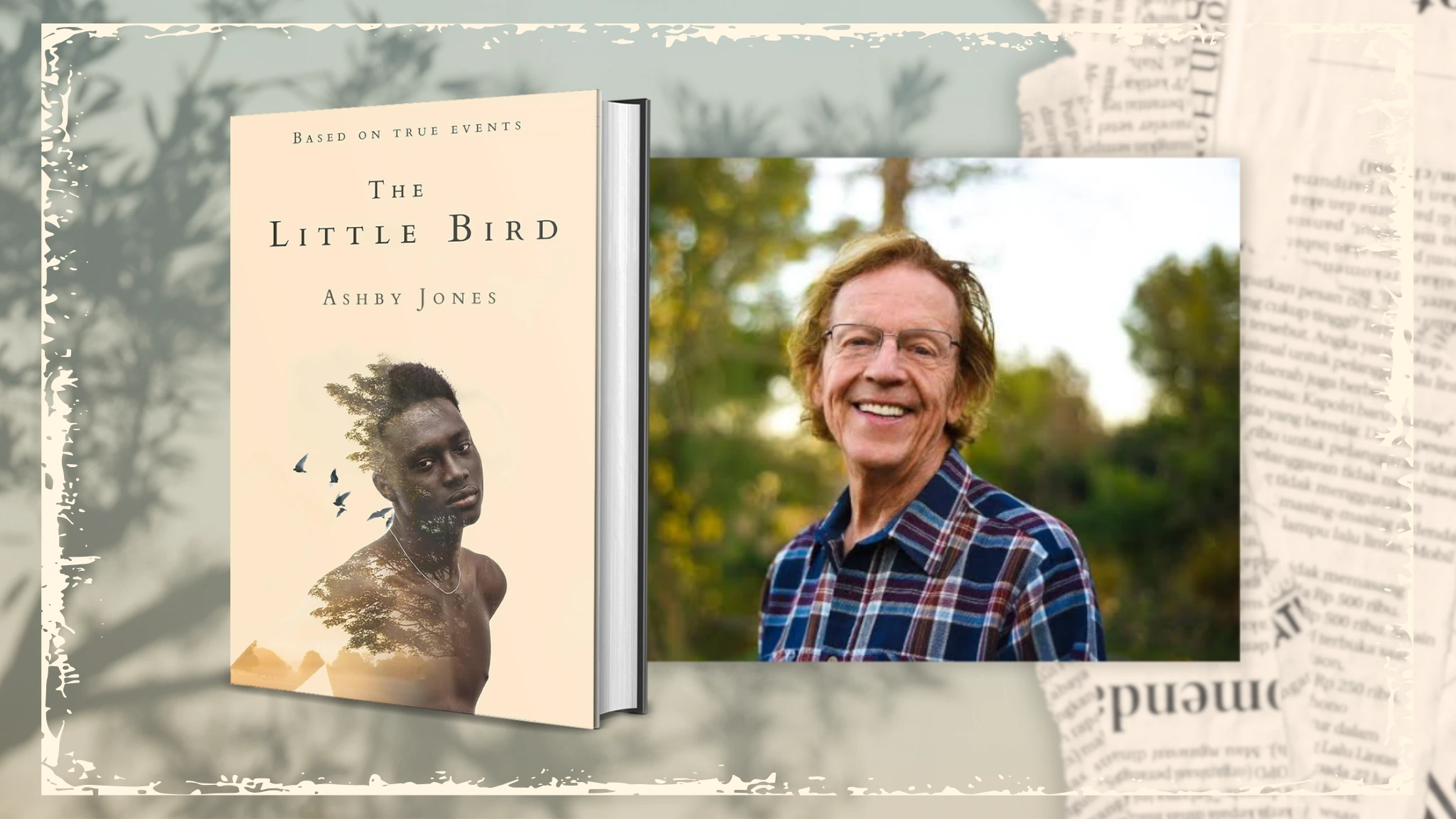The Little Bird by Ashby Jones
More and more, there’s been a growing discussion of trauma — of the ways it weighs on an individual, coloring their every experience. But less discussed is the effect of trauma not on a person, but a place.
Ashby Jones‘ historical novel, The Little Bird, leads that very discussion. Full of psychological twists, its tense atmosphere is wholly accurate to a town like Meridian, Virginia — a town overrun with racism, prejudice and the evergreen presence of tragedy that lingers on for generations. But in the midst of this bleak environment, two kindred souls are able to find each other. It’s not only companionship they’re looking for, however, but the assistance to bring justice to a corrupt and hateful town.
In this interview, we talk with the author himself on crafting a narrative that deals so heavily with difficult topics, yet still provides a glimmer of hope in the darkness. Not only that, but Jones also asks us to consider the meaning of forgiveness, not only for the characters themselves but for ourselves, as well.
Q: The Little Bird touches on deeply painful and complex themes like racial injustice, grief and trauma. What inspired you to tackle these themes, and how did you balance them with the novel’s exploration of love and forgiveness?
A: Most likely, I was inspired by these themes because at an early age my life was filled with trauma. I grew up in a place replete with racial injustice and while growing up I was assaulted by the demons of tragedy, drunkenness, family fights, insanity and suicide. I trust that love and forgiveness are critical in banishing these thugs. Love and forgiveness are supported, if not joined, by hope, resolve, strength, passion, maturity and the ability to put others before one’s self. I hope that The Little Bird ultimately balances the themes to help bring meaning to love and forgiveness.
Q: Shane and Suzanne are both haunted by their fathers’ legacies, yet they channel their pain in very different ways. How did you develop their characters to reflect these divergent paths?
A: Pain can take different paths while having other paths running parallel to them. Those paths include shame, blame, guilt, anger, fear, weakness, regret, loneliness. These paths travel through the hearts and minds of both Shane and Suzanne. In Shane, they manifest primarily as anger, guilt and retribution and in Suzanne, shame, fear and guilt. Love strives to overcome these tributaries and lead them down their unshared path to the same destination.
Q: The novel is set in the South during a time of racial tension. How did you approach portraying the social and cultural atmosphere of 1964 Virginia, and what role does the setting play in shaping the characters’ choices?
A: I tried to approach the social and cultural atmosphere in the story’s time period accurately, honestly and with passion, for I lived it. Bigotry was rampant throughout the town of Meridian. It played an essential role in the lives of the main characters, resulting in Suzanne’s father’s loss in the prosecution of the white cop who killed Jesse, a young Black boy Shane considered to be his brother. Racism appears in several places, at Medic’s “Emancipation” party, at the movies Shane and Jesse attend together, at Holland’s pool hall, and especially in the courtroom. The troubles that Suzanne and Shane struggled with were effectively the result of racism. It was a burdensome source of difficulty when attempting to discover the truth about Jesse’s murder.
Q: Shane’s quest for justice seems to be driven by anger, while Suzanne’s journey is steeped in despair. How do you see their inner struggles affecting their relationship?
A: The struggles of the main characters are similar but different. Similar because both were possessed by overwhelming guilt, Shane for “letting” Jesse come to the game and Suzanne for temporarily saving her father’s life. Different because their inner struggles resulted in different driving forces. In Suzanne’s case, despair, for she was unable to prevent her father’s call to death and unable to admit she’d fallen in love with Shane. This became the main obstacle between them. In Shane’s case, anger. However, Suzanne enabled him to overcome his anger by sculpting a melting image of Jesse at the ice plant that helped Shane find forgiveness. So, despair and anger were ultimately overcome by love and anger.
Q: Forgiveness is a central theme in the book. How do you define forgiveness in the context of this story, and what do you hope readers take away from the characters’ grappling with this concept?
A: Forgiveness in the story is the ability to overcome its cause by the discovery and acceptance of the truth and/or reality of the disabling situation. Once discovered the purpose in one’s life and/or vision can hopefully be found and sought after. While there will always be stumbling blocks along the way to a freer life, the incidences that possess the potential to cause guilt or shame and may be resolved as before, with the understanding of our true involvement and its dismissal in our hearts and souls. This encapsulates what I hope readers will take from the reading.
Q: Suzanne’s father’s decline and ultimate suicide seem to weigh heavily on her. How does the theme of inherited trauma play out in her character?
A: The heavy weight of her father’s suicide plays out in Suzanne’s inability to free herself from its leash (guilt, shame, abandonment) and avoid her own self-destruction. Believing that she must obey his demanding path to repentance, she has been denied her path to freedom, individuality and thus to love. As she approaches the fifth “anniversary” of his death — the date when she’s chosen to end her life — the determination to kill herself increases, playing out in an incessant temptation with death. It plays out with finality, though her desires to live and love overtake her at last and redefine the end as the beginning.
RELATED POSTS:
Two Souls Pursue Justice While Navigating Their Own Paths to Healing
About Ashby Jones:
 Ashby Jones has been writing historical novels for 50 years. With degrees in Literature and Clinical Psychology; Creative Writing at UCLA under the guidance of Leonardo Bercovici. Jones previously published: The Angel’s Lamp in 2017 which was well-received and reviewed by the Irish Times. Jones’s passion is writing literary fiction that attempts to understand mankind’s never-ending battles with irony, tragedy, blatant contradiction, and the anomalies of love. Such is the focus of The Crossing. He studied under such notables as William Hoffman, a best-selling author, and years later at UCLA under Leonardo Bercovici, a highly regarded screenwriter.
Ashby Jones has been writing historical novels for 50 years. With degrees in Literature and Clinical Psychology; Creative Writing at UCLA under the guidance of Leonardo Bercovici. Jones previously published: The Angel’s Lamp in 2017 which was well-received and reviewed by the Irish Times. Jones’s passion is writing literary fiction that attempts to understand mankind’s never-ending battles with irony, tragedy, blatant contradiction, and the anomalies of love. Such is the focus of The Crossing. He studied under such notables as William Hoffman, a best-selling author, and years later at UCLA under Leonardo Bercovici, a highly regarded screenwriter.






